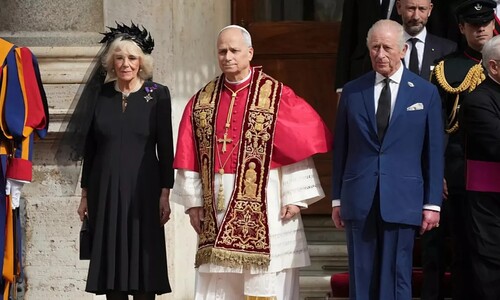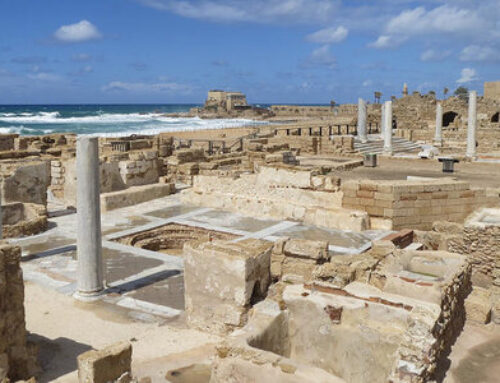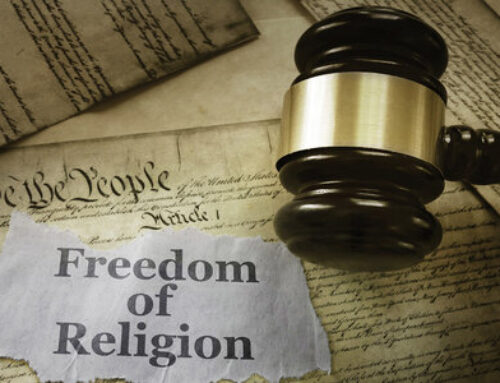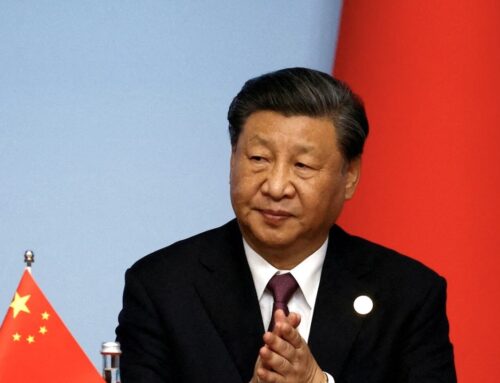Why is this here? To all the scoffers, naysayers, and doubters of the times we live in, those who disbelieve in the inerrant, infallible, unchangeable, eternal, living, and active Word of God. Who mock and say nothing really changes, everything pretty much goes on as it has, no way this Jesus you say is God is coming back again [see 2 Peter 3:3-4], and they refuse to acknowledge when something that hasn’t happened in five hundred years takes place? It’s time for everyone to pay attention.
Wake up, O, ye sorely lost woke ones, all ye blind and deaf stumbling in darkness!
Now that half the people who were here have clicked off, to those remaining…
I don’t give a flying purple pig wearing a mitre petriosa eating a ham on rye sandwich as he wizzes by in the sky about the pope, or King Charles, really, but we are instructed to know the times in which we live. To recognize the signs. To be watchmen and watchwomen. Awaiting the return of our Lord Jesus Christ, Yeshua Hamashiach.
The pope and King Charles uniting in a supposed Christian church service ought to be flashing and blowing a trumpet as if they were wearing neon lights attire and had a big brass band marching behind them.
It’s in the details.
The myriad signs and wonders occurring almost daily now.
We all, no matter our point or position in this life, have a few minutes a day [ever seriously tally the number of wasted minutes spent daily? Be honest, no one utilizes every minute well and wisely] have a few minutes to pay attention. To be aware. To watch and listen for certain events that take place, AND THEN GO TO THE BIBLE and read the prophets, the prophecies of the end of days. What is and what will be.
One world religion will be. It is swiftly taking shape, being constructed before our eyes, while the true, pure gospel, authentic historical Biblical Christianity is being deconstructed daily.
A little here, a little there. A crack here, a split there, a bit of this, a bit of that, and what was presumed solid falls apart, and what replaces it is everything clearly presented to anyone willing to learn, to know, to discover in God’s inerrant living Word.
Evil, while having a much longer leash in these last of the last days, and increased volume and boldness, is also subtle, cunning, seductive, and at the outset appears like light, goodness, the right thing, the right way to go — if your vocabulary, your understanding is founded on the world’s ways and wisdom.
Ahh, look, they’re getting along. Unity. Isn’t that great!?
Only if you’re in the dark and hate the truth. It’s all a grand deception. Illusion. A lie.
Don’t believe that?
Well, if you’re young enough, healthy enough, blessed enough, you may be here in the flesh to see the words of the Holy Bible revealing the very last days for this world as it has been known as The Great Tribulation unfolds. I won’t be here, nor will my wife. And a lot of folks that we know. Thankfully.
This website won’t exist.
But, hopefully, prayerfully, you will remember this. The Holy Spirit will pierce the thick, hard, dark mantle of your heart and dead spirit, and you won’t worship the Antichrist or take his mark upon your body. Oh, you’ll suffer greatly for rejecting him — and accepting Jesus as LORD of your life, your Savior, but once the dead to the truth slaves of the Antichrist lop off your head, and your fleshly body perishes, you will receive a reward in heaven, eternally, beyond any comprehension.
Yes, the pope and the king of utterly lost England hanging out in a big show service pretending they’re holy Christians, after such a thing hasn’t happened in five hundred years, is a thing. A rather big deal with regard to the end of days.
Read on…
Ken Pullen, Monday, October 27th, 2025
King Charles & The Pope’s Ecumenical Service – A Dangerous Illusion Of Unity
October 24, 2025
By PNW Staff
Reprinted from Prophecy News Watch
It was a sight unimaginable for five centuries: beneath the vaulted frescoes of the Sistine Chapel, King Charles III and Queen Camilla sat alongside Pope Leo XIV in a joint worship service blending Anglican and Roman Catholic elements. Golden thrones, sacred music, and solemn prayers filled the room — a scene rich with symbolism.
And yet behind the beauty of the ceremony lies a deeper question: What kind of unity is this?
For the first time since the English Reformation, a reigning British monarch — sworn to uphold “the Protestant Reformed religion established by law” — joined a Pope in public worship. Some heralded the event as a healing of old wounds between Canterbury and Rome. Others, especially among evangelical believers, saw something else — a troubling blurring of lines that God Himself drew through the very truths of the gospel.
Because while unity is noble, unity without truth becomes deception. To pretend that five hundred years of theological difference have suddenly evaporated under the glow of good will is not reconciliation — it’s denial.
Let us indeed be civil. Let us be charitable. But let us not be confused. Truth matters. And love rejoices in truth, not without it (1 Corinthians 13:6).
Below are ten core distinctions that still separate Roman Catholic teaching and Protestant, evangelical conviction — distinctions that remain as relevant today as they were in the days of Luther and Tyndale.
1. Scripture Alone vs. Scripture Plus Tradition
The heart of the Reformation beat around one phrase: Sola Scriptura — “Scripture alone.” Protestants believe the Bible is the final and sufficient authority for faith and practice. The Catholic Church, by contrast, teaches that both Scripture and Sacred Tradition together form the Word of God, interpreted infallibly by the Magisterium.
This is not a small footnote of difference — it’s a fundamental question of authority. Who decides what is true? The Protestant answers: God’s Word alone. The Catholic answers: the Church, through its ordained hierarchy. And therein lies the danger. When any man or institution places itself above or beside the Word of God, it’s no longer God’s truth that rules the church, but human interpretation.
In every generation, this question resurfaces. Will we build our faith on the unchanging Word of God — or on a system that can redefine truth as it pleases? And to be fair – this is not just a criticism of how the Roman Catholic church approaches scripture. Numerous protestant pastors today treat the Bible as a buffet, picking and choosing what they feel is relevant and what is not. The whole counsel of God needs to be treated as inspired as written, not reinterpreted to our modern day progressive ideologue as so many woke pastors do.
2. Justification by Faith Alone vs. Faith and Works
Protestants proclaim with joy that sinners are justified — declared righteous — by faith alone in Christ alone. It is a once-for-all act of grace. Catholics teach that justification is a process involving cooperation between human effort and divine grace, where righteousness is infused gradually through participation in the sacraments.
The difference is not theoretical — it’s the difference between peace and perpetual striving. If justification depends on my progress, I can never truly rest. But if justification depends on Christ’s finished work, I can stand secure.
The gospel that saves says: “It is finished.” The gospel that enslaves says: “Keep trying, perhaps you’ll make it.” One produces grateful obedience born of love; the other breeds fear, guilt, and uncertainty.
3. The Nature of the Sacraments
Rome teaches seven sacraments as channels through which grace is literally conveyed: baptism, confirmation, Eucharist, penance, anointing of the sick, holy orders, and matrimony. Protestants recognize only two — baptism and the Lord’s Supper — as symbolic yet powerful signs commanded by Christ.
The distinction is simple yet profound: do sacraments save, or do they point to the Savior? To the Protestant, baptism and communion are outward testimonies of inward faith. To the Catholic, they are means by which grace is dispensed, often apart from personal belief.
Christ never intended ritual to replace relationship. When ceremony eclipses the gospel, people trust the performance instead of the Person who redeems.
4. The Priesthood and Mediation
Protestants affirm the “priesthood of all believers” — that through Christ, every believer has direct access to God (1 Peter 2:9). The Catholic system maintains a hierarchical priesthood through which grace flows and forgiveness is pronounced.
But the New Covenant tore the veil in two. The High Priest is no longer a man in robes but the risen Christ Himself (Hebrews 4:14-16). To re-insert a human priest as mediator between God and man is to rebuild a wall that Christ died to destroy.
Let us respect our Catholic neighbors, but let us not yield this truth: the believer needs no earthly mediator to find God’s grace. The door is open — wide and forever — by the blood of Jesus alone.
5. The Eucharist vs. the Lord’s Supper
In Catholic theology, the bread and wine become the literal Body and Blood of Christ — a miraculous change known as transubstantiation. In Protestant belief, the elements remain bread and wine, serving as a vivid reminder of Christ’s once-for-all sacrifice.
The distinction matters because it reveals how each side views the cross. Protestants see the Lord’s Supper as a proclamation of a finished redemption — “Do this in remembrance of Me.” Catholic teaching sees it as a repeated sacrifice, a mystical re-presentation of Calvary.
The Protestant conscience trembles at that thought, for Scripture says Christ was sacrificed once for all (Hebrews 10:10). To repeat what was finished is to suggest the cross was incomplete. And if the cross is incomplete, the gospel collapses.
6. The Pope’s Authority and Infallibility
Catholics hold that the Pope is the vicar of Christ on earth, possessing universal jurisdiction and, when speaking ex cathedra, infallibility in matters of faith and morals. Protestants reject this entirely. Christ alone is Head of the Church, and no man can claim infallible authority over the people of God.
History shows what happens when spiritual power becomes absolute: truth bends to politics, and holiness gives way to hierarchy. The Reformers did not reject papal authority because they despised order — they rejected it because they loved Scripture. It is for that very reason that the majority of the Anglican church has now split from the authority of the Church of England due to it’s appointment of feminist/pro-abortion Sarah Mullally as the first female Archbishop of Canterbury.
The evangelical church must never again be seduced by claims of divine authority resting in human hands. We already have a perfect Shepherd and an infallible Word. We need no earthly crown beside it.
7. Mary and the Saints
The Catholic Church venerates Mary as “Queen of Heaven,” prays for her intercession, and celebrates doctrines like the Immaculate Conception and Assumption. Protestants honor Mary as the humble mother of Jesus — blessed, yes, but still a sinner saved by grace.
The problem is not respect but replacement. When Mary becomes co-mediator, Christ’s unique role as intercessor is eclipsed. When prayers rise to saints instead of the Savior, affection becomes idolatry.
Evangelicals do not dishonor Mary by refusing to pray to her; we honor her by imitating her words: “My soul magnifies the Lord.” She pointed to Christ, not herself. That is her enduring greatness — and the lesson Rome must still learn.
8. Purgatory and the Afterlife
Catholicism teaches that after death, believers undergo purification in Purgatory before entering Heaven. Protestants reject this as unscriptural. The Bible declares, “To be absent from the body is to be present with the Lord” (2 Cor. 5:8). Christ’s sacrifice was sufficient — nothing remains to be purged.
Purgatory sounds compassionate — a final cleansing before glory. But it quietly denies the completeness of grace. If sin remains to be burned away, then the cross did not finish its work. And if the blood of Christ leaves residue, what hope does any of us have?
The gospel says the believer’s sins are “as far as the east is from the west.” There is no halfway house between guilt and glory. In Christ, we pass straight from death into life.
9. Grace and Merit
Catholic doctrine teaches that grace is received through the sacraments and that good works can merit further grace and even eternal reward. Protestant theology insists that grace is entirely unearned — a gift that produces works, not the other way around.
The difference is subtle but seismic. In the Catholic system, man contributes to his salvation; in the gospel, man contributes only his sin. Grace, by definition, is unmerited. Once we add our effort to it, it is no longer grace at all.
The danger of any “grace-plus” theology is that it shifts glory from the cross to the creature. And as long as man takes even a sliver of credit, Christ’s crown is tarnished.
10. The Church Itself
Rome sees itself as the one true Church, outside of which there is no salvation. Protestants believe the true Church is the body of all who are born again by faith in Christ — a spiritual fellowship that transcends denomination, culture, and hierarchy.
The issue here is not structure but salvation. The Catholic Church ties spiritual life to institutional membership; evangelical faith ties it to regeneration. The one says, “Come to the Church, and find Christ.” The other says, “Come to Christ, and you’ll find His Church.”
Unity, therefore, cannot mean submission to Rome. It means fellowship in the gospel — not uniformity under papal rule.
Truth and Grace in Our Time
King Charles’s participation in this service marks an extraordinary historical moment — but not a theological reconciliation. The rift between Rome and biblical Christianity remains. We should not greet such events with hostility, but neither with naïve celebration.
True unity can never be built on blurred doctrine. It must rest on truth, repentance, and fidelity to the Word of God. The Bible calls believers to “speak the truth in love” (Ephesians 4:15). That means being gracious to Catholics while remaining unyielding on the gospel.
Let us hope this moment inspires dialogue, not delusion. May it renew in us the conviction that the gospel is not a shared compromise between traditions, but the blazing center of truth around which all true believers must rally.
Let the world see our kindness — but also our conviction. We can respect the Pope, honor the King, and still stand firm on the Rock that neither throne nor tradition can replace: Christ alone, Scripture alone, faith alone, grace alone, to the glory of God alone.







Leave A Comment
You must be logged in to post a comment.